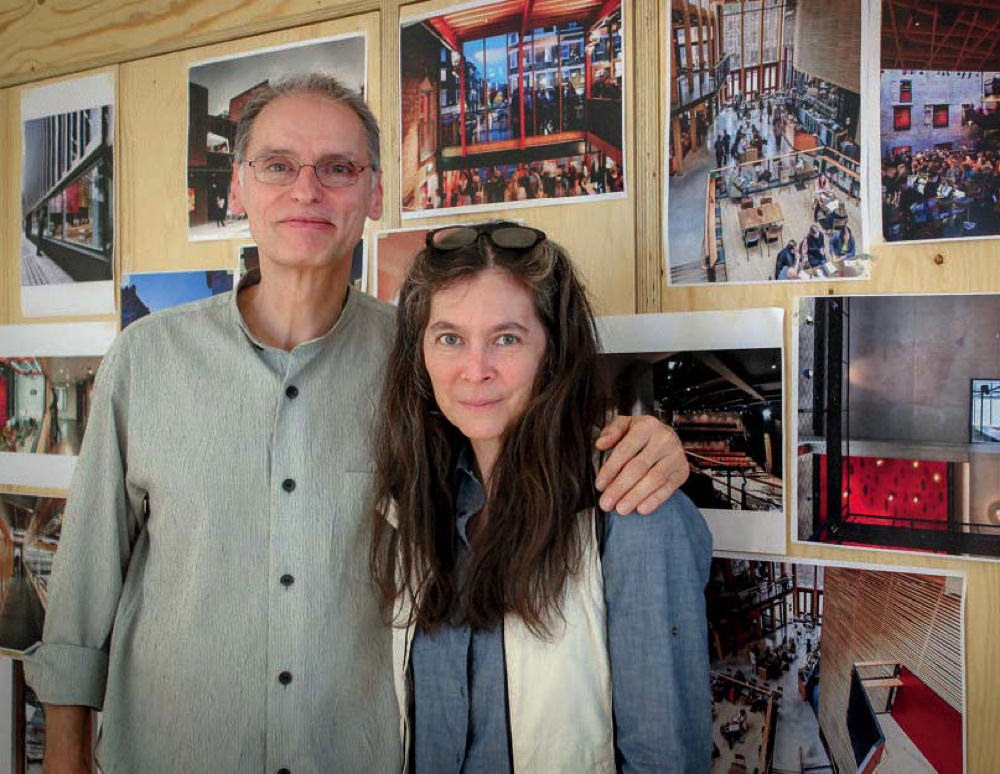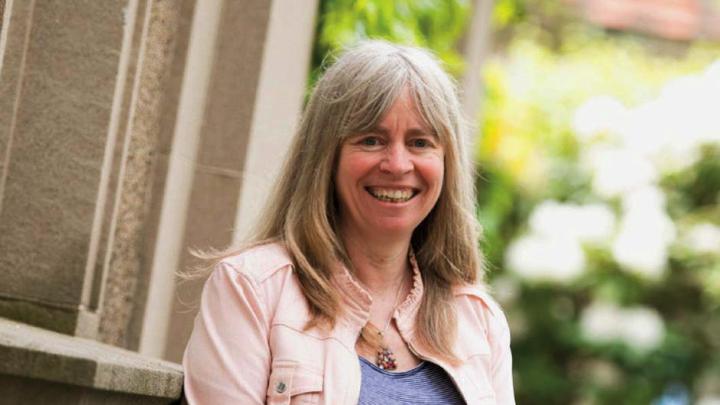Museum Management
Jane Pickering—executive director of the Harvard Museums of Science & Culture since 2013—has been appointed Howells director of the Peabody Museum of Archaeology and Ethnology, reporting to Faculty of Arts and Sciences dean Claudine Gay. The dean said a new faculty executive committee will help shape the museum’s strategy, and that it was an appropriate time “to consider how we engage with the communities from which [its] collections derive.”
Early Decision Redux
Selective colleges and universities, including Harvard, have tried to contain guaranteed early admissions, on the ground that they may be unfair to qualified applicants from under-resourced backgrounds where, for instance, counseling is limited. Thus, Harvard offers “early action,” but not binding “early decision” (under which those offered a spot in an entering class, typically in December or January, must commit to accepting it), to applicants who want some assurance about their college choices. In May, the University of Virginia, which had eliminated binding early decision in 2006, reintroduced it, alongside regular and early-action options. This may ignite a competitive response from peer institutions, at a time when they have been trying to level the playing field for applicants from lower-income and first-generation families, who are more likely to need to compare financial-aid offers from several schools, rather than committing early to one.
Across the Pond
The University of Oxford now shares its peer American institutions’ passion for admitting undergraduates from under-represented backgrounds (see “Mastering the ‘Hidden Curriculum,’ ” November-December 2017, page 18). Opportunity Oxford and Foundation Oxford, unveiled by vice-chancellor Louise Richardson in May, aim to recruit students from socioeconomically disadvantaged backgrounds, and from personally disadvantaged or educationally disrupted circumstances, respectively. The goal is to boost their presence among entering students from 15 percent of each class now to 25 percent by 2023. Opportunity Oxford will extend structured home study, plus a two-week residential immersion, to help up to 200 students transition to the university in its first year. The Foundation is a full-year program of instruction for refugees, children responsible for caring for their families, and others. (Richardson, past principal and vice-chancellor of the University of St Andrews, was Radcliffe Institute executive dean from 2001 to 2008.)
Humanities Meet AI
Stephen A. Schwarzman, M.B.A. ’72, chairman and CEO of the Blackstone investment firm, has given £150 million to the University of Oxford to underwrite the eponymous Centre for the Humanities. The new facility will house the humanities departments together; incorporate concert, auditorium, and exhibition spaces; and become home to a new Institute for Ethics in AI (artificial intelligence)—an area of burgeoning interest at many universities, including Harvard. Schwarzman last fall made the $350-million naming gift for MIT’s new College of Computing, and has previously donated $150 million to Yale, his undergraduate alma mater, for a campus center.
Development News
The Pritzker Foundation has made a $100-million commitment to the University of Chicago to underwrite a new Pritzker School of Molecular Engineering—that university’s first engineering school. (Harvard Corporation member Penny Pritzker ’81 is herself a prominent philanthropist. Locally, she supported the conversion of Cabot Library and the Science Center commons—see harvardmag.com/cabot-redo-17.)… Emory University’s global-health institute has received $180 million from the Bill & Melinda Gates Foundation to support its network that monitors child health and mortality prevention, bringing the foundation’s total investment in the program, established in 2015, to $271 million.
Curatorial Changes
The Harvard Art Museums have appointed Joachim Homann the new Abrams curator of drawings, effective in mid August. He was formerly curator of the Bowdoin College Museum of Art.…Ethan Lasser, Stebbins curator of American art and head of the division of European and American art (see “The Lost Museum,” May-June 2017, page 42), has been appointed Cabot chair of the art of the Americas at the Museum of Fine Arts, Boston, effective September 14.…And Carmen Arnold-Biucchi, the museums’ inaugural Damarete curator of ancient coins (Harvard Portrait, September-October 2003, page 74), has retired after nearly 17 years of service.
Online Investments
Coursera, the for-profit online learning platform (a competitor to the nonprofit Harvard-MIT edX), announced a fifth round of equity financing, totaling $103 million and bringing its valuation to a reported $1 billion. One of the investors, the Austrialian-based SEEK Group, a jobs platform that also has interests in international enrollment services and online academic programs, separately invested $65 million in the Open University, which operates FutureLearn (which is especially active in Australia and Great Britain). Both entities seek to manage online programs for universities, and to provide degrees or other credentials to their learner-users.
Admissions Fallout
In the wake of the Varsity Blues admissions scandal (see “Thinner Ice,” July-August, page 3), U.S. senator Ron Wyden (D-Oregon) has introduced legislation that would require colleges to bar the consideration of family members’ donations or ability to donate in evaluating applicants for admission; require reporting (which would be made public) on the number of applicants, admitted students, and enrolled students who are the children of donors; and limit the deductibility of gifts, for institutions that don’t comply with the first provision, to $100,000 for a six-year period surrounding an applicant’s enrollment (and prohibiting standard tax deductions for larger gifts). Colleges could avoid the limits on tax-deductibility, Wyden said, by adopting policies that bar consideration of gifts in admissions decisions.
Endowment Tax
In late June—at the end of the first fiscal year in which Harvard would have to pay the 1.4 percent excise tax on endowment investment income enacted in late 2017 as part of the sweeping federal tax legislation—the U.S. Treasury issued initial guidance on how the tax would work (“Taxing Matters,” January-February 2018, page 17). Many questions remain—for example, regarding the government’s suggestion that interest income on student loans and rental income on institutions’ student housing units both count as taxable investment income. The University, which continues to lobby against the tax, has not updated its prior guidance that Harvard faces an annual tax bill of $40 million or more.
An A.B.: Still Worth It.
Although the opportunity cost of attending college has increased as employment prospects and wages have risen (and as public institutions’ tuition bills have soared in the wake of the Great Recession), an analysis by Jaison R. Abel and Richard Deitz of the Federal Reserve Bank of New York indicates that a college degree continues to confer a $30,000-plus wage premium for the average graduate, compared to the earnings of those who have only a high-school diploma. That implies an internal rate of return of 14 percent on the investment made to earn a bachelor’s degree—well above the expected return for investing in, say, stocks and bonds.…Separately, survey research by Third Way, a think tank, revealed that despite underlying partisan attitudes toward higher education found in other polls (see “News Briefs,” January-February, page 26), voters across the spectrum believe in the value of college—and that educational institutions “can and should do more to provide value to the students they are supposed to serve,” particularly in equipping them with job skills.
Mastering Biotech
Harvard Business School and the Graduate School of Arts and Sciences have launched their joint two-year S.M./M.B.A. biotechnology: life sciences degree. Enrollment begins next August, with seven to 10 degree candidates initially. Students will study life sciences in the department of stem cell and regenerative biology (SCRB; itself a collaboration between the Faculty of Arts and Sciences and the Medical School), and management and entrepreneurship at HBS, with the aim of preparing to apply biomedical research in business and commercial contexts. About half of current SCRB graduates enter biomedical and biotech fields, or finance.
ART Architect

Photograph courtesy of the A.R.T.
The American Repertory Theater announced that London-based Haworth Tompkins will design its new Allston facility—the firm’s first U.S. building. Haworth Tompkins was the architect for the prizewinning Liverpool Everyman theater, among other performing-arts projects (see harvardmag.com/art-architect-19). Principal Steve Tompkins is shown here with the ART’s Bloom artistic director, Diane Paulus.
Nota Bene
Development dean. Armin Afsahi has been appointed associate vice president and dean of development for the Faculty of Arts and Sciences, effective August 1, reporting to FAS dean Claudine Gay and University vice president for alumni affairs and development Brian K. Lee. Afsahi was vice chancellor for academic development at the University of Denver, and previously worked in fundraising at the University of California, San Diego, and Georgetown.
Undergraduate guides. The Harvard Art Museums have received a $1-million gift from George Ho ’90, Henry Ho ’95, and Rosalind “Sasa” Wang to establish the Ho Family Student Guide Fund; it will support research and training for undergraduate guides. Henry Ho is chairman and CEO of Tung Ho Steel Enterprise, in Taipei City; his brother George, a visual and environmental studies concentrator, is an artist, and his wife, Sasa, is a volunteer docent at the National Palace Museum.
Fellowship flap. On June 28, the Taubman Center for State and Local Government at the Harvard Kennedy School announced that former Michigan governor Rick Snyder had been named a senior research fellow. Critics within the University and beyond assailed the appointment, because of his involvement in the decisions that led the citizens of Flint, then overseen by the state, to be exposed to lead-tainted water (the subject of Mona Hanna-Attisha’s Medical School class day address on May 30; see harvardmag.com/hanna-attisha-19). On July 3, dean Douglas Elmendorf announced that Snyder had withdrawn. He noted that Flint residents had “suffered acutely,” and that the HKS community had much to learn from studying “both failures and successes of government” but now believed, with Snyder, that the proposed fellowship “would not enhance education here in the ways we intended.”
Data science: the magazine. Harvard Data Science Review, published online by the eponymous initiative (see harvardmag.com/datascience-17) and distributed by MIT Press, debuted in July. It bridges research, education, and popular communication, with authors from diverse institutions. The first issue (https://hdsr.mitpress.mit.edu) features an essay by provost Alan M. Garber on what educated citizens need to know about the field.
Miscellany. The Poets and Quants blog, on business education, reported that the cost of an M.B.A. (tuition, fees, and expenses) exceeds $200,000 at nine top programs, led by Stanford ($231,672); Harvard Business School ranks seventh (at $218,248). In return, HBS graduates earned an average annual starting compensation of $160,000-plus.…As students continue to express strong interest in ethnic studies, Faculty of Arts and Sciences dean Claudine Gay announced a plan to hire a cluster of three to four “cross divisional scholars” in Asian-American, Latinx, and Islam in America/Muslim American “ethnicity, indigeneity, and migration” during the new academic year.…Fourteen members of the U.S. House of Representatives, including Ruben M. Gallego ’02/’04 (D-Arizona) and Elise M. Stefanik ’06 (R-New York), have introduced a College Freedom of Association Act; it would amend federal law to prohibit actions like Harvard’s sanctions on undergraduate membership in single-sex final clubs, fraternities, and sororities.…Mehra Family professor of South Asian studies Sunil Amrith, an historian (Harvard Portrait, September-October 2017, page 19), has been appointed interim director of the Mahindra Humanities Center, succeeding Rothenberg professor of the humanities Homi Bhabha.








